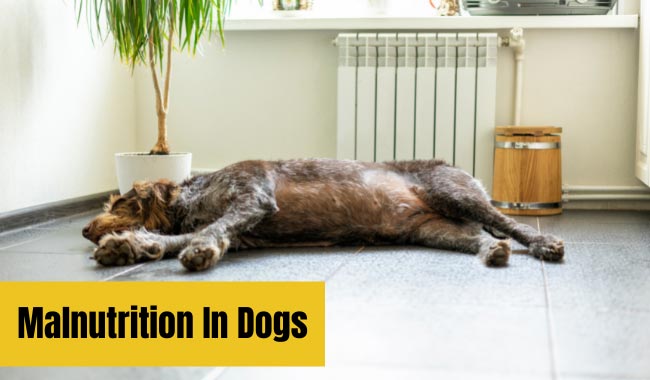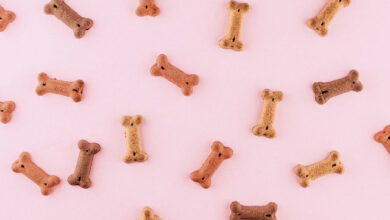
When your dog is throwing up, shaking, or in severe pain- it’s easy for most owners to tell that they’re unwell and need to be taken to a vet. When your dog isn’t showing extreme signs or symptoms, it can be a bit harder to understand if they’re healthy or not- especially if going to the vet isn’t a regular part of your care routine for your dog.

So, in the spirit of healthy pets- we rounded up a few signs of poor nutrition and wellness in dogs so that pet parents can stay on top of their dog’s health- even when the signs aren’t extreme.
Read More:
- How to Choose Food for Dog
- how to make sure that your dog is getting enough nutrition
- How to Feed Puppies | Puppy Feeding Guide
- Dog Nutrition | Nutrition Tips for Raising Dogs
- 5 Common Dog Nutrition Mistakes to Avoid
Why does nutrition matter for dogs?
But first! Let’s talk about why canine nutrition is important. Proper nutrition is a big part of a healthy dog. Just like humans, your dog’s nutritional needs may change with age and should be evaluated regularly to make sure that your dog is healthy. Poor nutrition is the root cause of many serious illnesses and conditions for dogs. This can range from obesity to allergies, fur loss, emaciation, and more.
Each breed has its own set of unique health challenges, which you should also take the time to investigate. Sites like petcareadvice.com are gold mines for reputable articles written by pet care experts with expertise, experience, and a proven track record. Likewise, websites like AKC’s can help you identify the breed of your dog, too. If you want an exact breakdown of the breeds that have built your pup, talk to your veterinarian about genetic testing for your pooch.
What are common signs of Malnutrition in Dogs?
Rarely is poor nutrition one symptom and rather a collection of them. Dogs with poor nutrition will typically display one or more of the following:
- Bad breath and unnatural body odor
- Frequent infections
- Skin irritations and excessive scratching
- Fur loss and excessive shedding
- Bowed and weak limbs
- Dandruff and dry coat
- Inconsistent or unusual bowel movements
It’s also worth noting that if your dog displays any extreme changes in eating or drinking habits, it’s important to encourage healthy consumption and schedule a visit with the vet. Sudden changes in eating or drinking problems may be a sign that your canine companion isn’t feeling well. This is especially urgent if your pet has stopped drinking water for an extended time period.
What causes poor nutrition in canines?
Poor nutrition in dogs can be the result of a variety of different factors. Overfeeding or underfeeding your part can play a part, as too much or too little of the vitamins and minerals they need to stay balanced can cause illness. Parasites and bacteria can also play a part, with the tapeworm being one of the most common parasites that result in poor nutrition and illness.
Though not as common, your dog may also have unique medical needs that leave them in need of a specific diet and nutrition regime to get (and stay) healthy. Like humans, dogs can have unique nutritional needs. If you suspect this is the case, work with your vet to find a diet that benefits your dog.
There is no replacement for a veterinarian
Not sure if your dog’s nutrition is up to snuff? There is no replacement for a visit to a reputable veterinarian. If you’re in any doubt that your pet is healthy, schedule an appointment with a vet as soon as possible. Do not try to diagnose your pet yourself under any circumstances. Do not give them any medications or use homeopathic methods without consulting a vet first.
Have you had a pet with poor nutrition? Share your experience in the comment section below.


